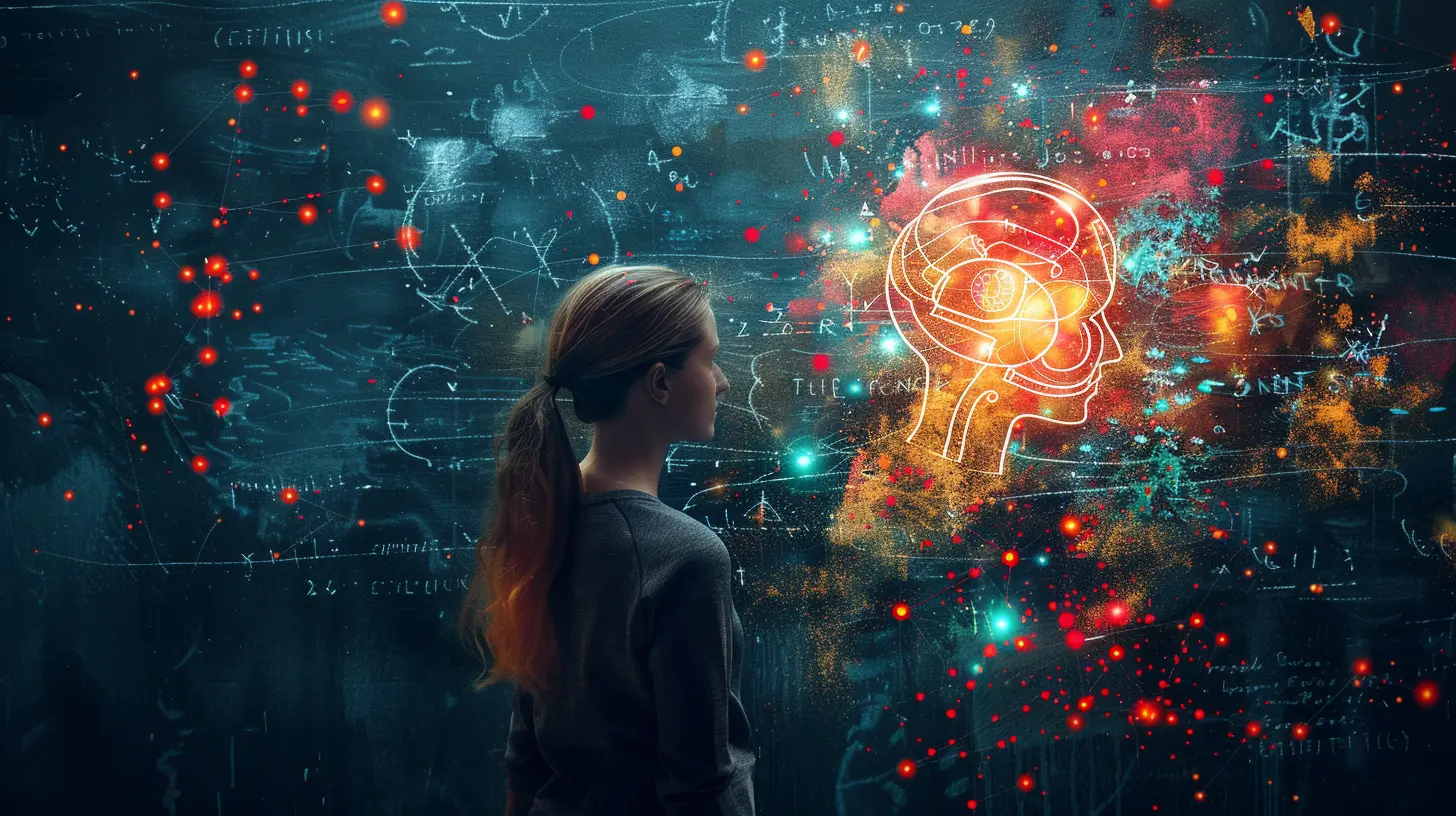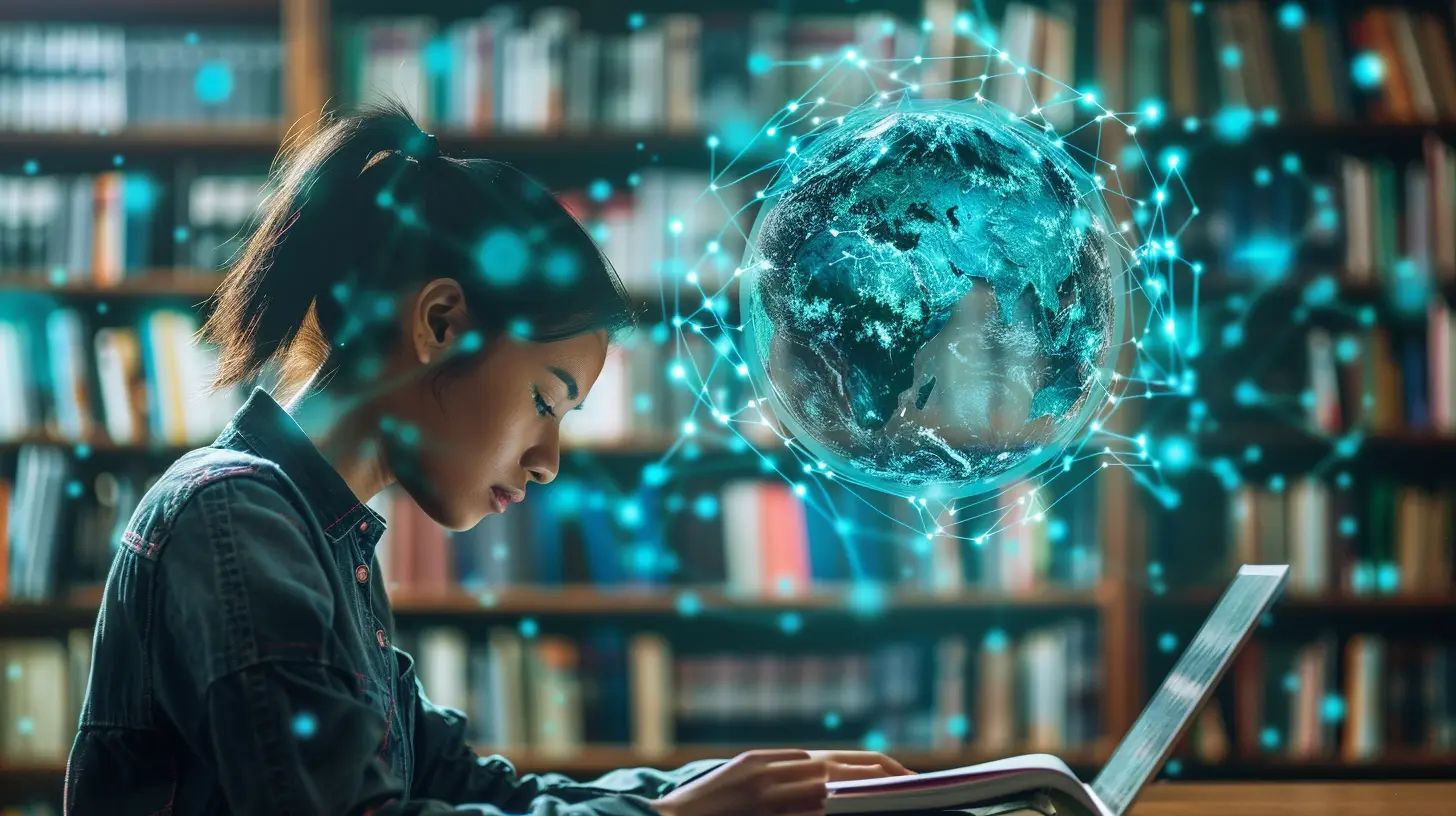Exploring the Role of Humanities in a Tech-Driven World
14 June 2025
Technology is advancing at an unprecedented pace, transforming the way we live, work, and interact with the world. From artificial intelligence to machine learning, robotics to big data, innovation is shaping our future. But where does that leave the humanities?
Many assume that fields like philosophy, literature, history, and the arts are becoming obsolete in a world dominated by science and technology. However, that couldn't be further from the truth. The humanities play a crucial role in guiding technological advancements, ensuring ethical considerations, fostering creativity, and keeping humanity at the center of innovation.

Why the Humanities Matter in a Tech-Centric Society
At first glance, it may seem like STEM (Science, Technology, Engineering, and Mathematics) fields drive society forward while the humanities take a back seat. But can technology alone solve all of humanity's problems? The answer is simple: No.Technology provides us with tools, but it’s the humanities that help us use them wisely. Imagine building an advanced AI system without considering its ethical implications. Or developing a groundbreaking medical treatment without addressing the human emotions tied to illness and healing.
The humanities provide the moral compass, the historical context, and the creative vision that technology needs to be meaningful and ethical.

Bridging the Gap Between Technology and Ethics
One of the most pressing concerns in today's tech-driven world is ethics. With artificial intelligence making decisions that impact human lives—whether in healthcare, finance, or criminal justice—the need for ethical oversight is stronger than ever.This is where philosophy and ethics come in. Thinkers like Aristotle, Kant, and John Stuart Mill spent centuries discussing morality, fairness, and justice. Their teachings help modern experts evaluate the ethical implications of AI, data privacy, and automation.
For example, should self-driving cars prioritize passenger safety over pedestrians in unavoidable accidents? Should companies have access to personal user data? These are not purely technical questions—they are human ones. And only by integrating ethics into technology can we ensure that innovation serves society rather than disrupts it.

Storytelling and Communication in the Digital Age
Technology has revolutionized the way we communicate. Social media, blogs, podcasts, and digital journalism have made information more accessible than ever. But without strong storytelling skills, even the most groundbreaking technological advancements can go unnoticed.This is where the humanities shine. Literature, language studies, and communication studies equip individuals with the skills to craft compelling narratives. Whether it's an entrepreneur pitching a startup idea, a scientist explaining research findings, or a tech company marketing a new product, effective storytelling is key.
Think about it: Apple didn't just sell computers—they told stories about creativity and innovation. The world’s most successful brands know that emotional connections matter, and that’s something the humanities have long understood.

The Creativity Factor: Humanities Fuel Innovation
Some of the greatest technological breakthroughs were fueled not by rigid logic, but by creativity and imagination—values deeply rooted in the humanities.Take Leonardo da Vinci, for instance. He was not only a great artist but also an engineer and scientist. His ability to blend art with science led to designs for flying machines, human anatomy studies, and groundbreaking artistic techniques.
Or consider Steve Jobs, who famously emphasized the intersection of technology and the liberal arts. He understood that innovation isn’t just about function—it’s about aesthetics, emotion, and human experience. The result? Products that weren’t just useful, but beautiful and intuitive.
Emotional Intelligence: A Skill Algorithms Can’t Replicate
While artificial intelligence is advancing rapidly, there’s something it still struggles to replicate—emotional intelligence. The ability to understand, relate to, and empathize with others is uniquely human.Professions like psychology, sociology, and anthropology help us decode human behavior, shaping everything from workplace culture to user experience design. In fact, tech companies actively seek professionals with backgrounds in these disciplines to improve customer satisfaction, diversity, and inclusion.
Behind every great user interface, marketing strategy, or leadership decision lies an understanding of human emotions and motivations. No matter how advanced AI becomes, it will always need human insight to create meaningful interactions.
Humanities in Tech Careers: A Surprisingly In-Demand Skillset
Believe it or not, humanities majors are increasingly sought after in the tech industry. Companies like Google, Microsoft, and IBM actively hire individuals with backgrounds in philosophy, history, and communications.But why? Because critical thinking, problem-solving, and creativity are essential skills—skills that the humanities cultivate. Many of the most challenging technological questions require multidimensional thinking, the ability to challenge assumptions, and the skill to see beyond code and algorithms.
Roles such as UX design, content creation, tech journalism, digital ethics consulting, and corporate communications all require a robust humanities foundation. In a world where automation is replacing repetitive tasks, uniquely human skills are more valuable than ever.
The Future: A Harmonious Blend of Tech and Humanities
The real magic happens when technology and the humanities work together. Rather than existing in separate silos, these disciplines must collaborate to create a better world.Imagine AI systems guided by ethical principles, digital media shaping public consciousness through compelling storytelling, and technology that prioritizes human well-being. The future isn't just about smarter machines—it’s about a world where technology enhances, rather than replaces, human experience.
So, the next time someone questions the value of the humanities in a digital age, remind them: Technology may shape the future, but the humanities give it meaning.
Final Thoughts
In a world rushing towards automation and digital transformation, it's easy to overlook the importance of the humanities. However, without ethics, creativity, emotional intelligence, and storytelling, technology would be nothing more than a collection of lifeless tools.The greatest advancements happen when the logical and the creative, the scientific and the philosophical, the technical and the human, come together.
If we want a future that isn’t just technologically advanced but also meaningful, ethical, and human-centered, then the humanities must not only coexist with technology but thrive alongside it.
all images in this post were generated using AI tools
Category:
Higher EducationAuthor:

Madeleine Newton
Discussion
rate this article
2 comments
Josie Taylor
Humanities are essential in tech advancement.
June 17, 2025 at 2:35 AM

Madeleine Newton
Absolutely! Humanities foster critical thinking, creativity, and ethical awareness, which are crucial for responsible and innovative tech development.
Marlowe Navarro
The integration of humanities within a tech-driven landscape is essential for fostering critical thinking and ethical considerations. As technology evolves, the humanities provide vital insights into the human experience, promoting empathy and creativity—qualities necessary for developing responsible innovations that serve society's diverse needs and values.
June 14, 2025 at 3:03 AM

Madeleine Newton
Thank you for your insightful comment! I completely agree that the humanities are crucial for ensuring that technology serves humanity responsibly and ethically.


